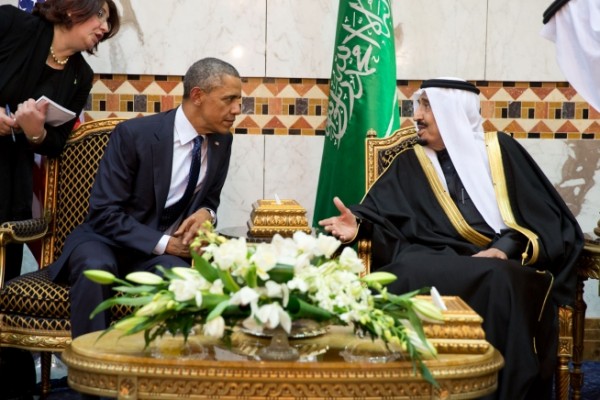 President Obama on a recent visit to Saudi Arabia. (Photo courtesy of the White House)
President Obama on a recent visit to Saudi Arabia. (Photo courtesy of the White House)
After months of sustained pressure from global humanitarian groups – as well as peace activists in Rhode Island – the United States seems poised to stop selling cluster bombs to Saudi Arabia, according to an exclusive report in Foreign Policy.
“Frustrated by a growing death toll, the White House has quietly placed a hold on the transfer of cluster bombs to Saudi Arabia as the Sunni ally continues its bloody war on Shiite rebels in Yemen,” the American news magazine focused on global events and foreign policy reported Friday night. “It’s the first concrete step the United States has taken to demonstrate its unease with the Saudi bombing campaign that human rights activists say has killed and injured hundreds of Yemeni civilians, many of them children.”
Textron, a global defense and aviation conglomerate headquartered in downtown Providence, makes the cluster bombs the US provides to Saudi Arabia through a Massachusetts subsidiary called Textron Systems. The last known contract with Saudi Arabia for Textron cluster bombs was signed in 2013, according to Mark Hiznay, a senior arms researcher for Human Rights Watch. The agreement says 1,300 cluster bombs were to be delivered to Saudi Arabia by December 31, 2015.
It’s unclear if that contract has been filled, in part, because Textron doesn’t comment publicly on international defense orders. Hiznay told RI Future he didn’t know the status of the order. Textron declined to comment publicly for this story. “It’s an important program for us,” company spokesman David Sylvestre told RI Future in February.
Cluster bombs are one of the world’s most controversial weapons of war. Because they disperse “bomblets” that don’t always detonate on cue, they cause civilian casualties sometimes years after a conflict ends. Cluster bombs are banned by 119 nations and the United Nations, but not by the United States or Saudi Arabia. Human Rights Watch and Amnesty International have both documented civilian casualties in Yemen after Saudi-led airstrikes against the war-torn Middle Eastern country.
Human Rights Watch, according to the Foreign Policy report, “has investigated at least five attacks in Yemen involving CBU-105s in four governorates since the war began. In December, the group documented an attack on the Yemeni port of Hodaida that injured a woman and two children in their homes. Two other civilians were wounded in a CBU-105 attack near Al-Amar village, according to local residents and medical staff interviewed by Human Rights Watch.”
In Rhode Island, where Textron is headquartered, peace activists led by the FANG Collective and the American Friends Service Committee, a Quaker group, have targeted Textron with weekly actions in front of the global conglomerate’s downtown Providence headquarters at 40 Westminster St.
“Does anybody in this country go to work to kill a total stranger? This company does that, for money. Not because they have any greivance against anybody they are doing this for money,” said Pia Ward, an organizer with the FANG Collective at the most recent protest in front of Textron. “I am going to protest until they stop making cluster bombs. I’m going to be here every week until they stop making them.”
Peace activists and politicians celebrated the news.
“The Cluster Munition Coalition applauds the decision of the US government to block the transfer of cluster bombs to Saudi Arabia,” said Megan Burke, the director of the International Campaign to Ban Landmines – Cluster Munitions (ICBL-CMC). “This decision follows numerous reports released by CMC members, such as Human Rights Watch, demonstrating the grave humanitarian impact of these weapons being used by the Saudi-led coalition in Yemen. We call on the US to take the next step to prohibit all future production, transfer and use of cluster munitions by joining the Convention on Cluster Munitions.”
Martha Yager, of the AFSC-SENE, confirmed the weekly protests against Textron until the company stops making cluster bombs.
“I am impressed that the U.S. has interrupted the flow of these awful weapons to Saudi Arabia,” she said. “Maybe now that the U.S. government has indicated reluctance to use or have its allies use U.S. made cluster bombs, Textron will announce that it is no longer going to make them. Until that happens, we will keep pushing on them to do the right thing. We will be there again on Thursday from 11:30 – 12:30 to make that ask.”
Congressman Jim Langevin told RI Future, “We must always seek to minimize harm to civilians in any conflict, and I applaud the Administration for taking this step to prioritize humanitarian concerns.”
]]>
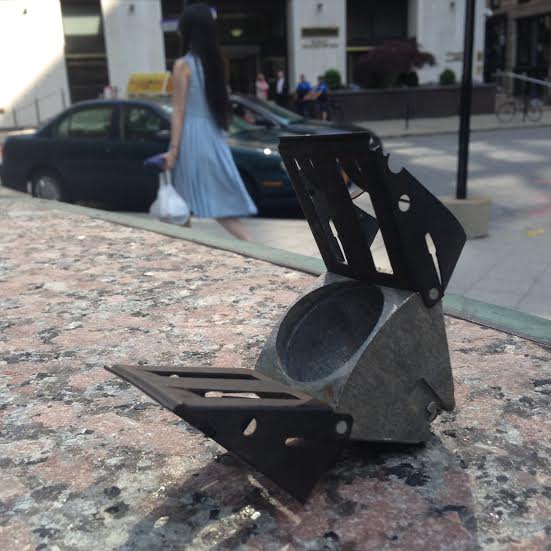 After global pressure from human rights groups, increasing pressure from Washington DC and months of protests locally, Textron is getting out of the cluster bomb business.
After global pressure from human rights groups, increasing pressure from Washington DC and months of protests locally, Textron is getting out of the cluster bomb business.
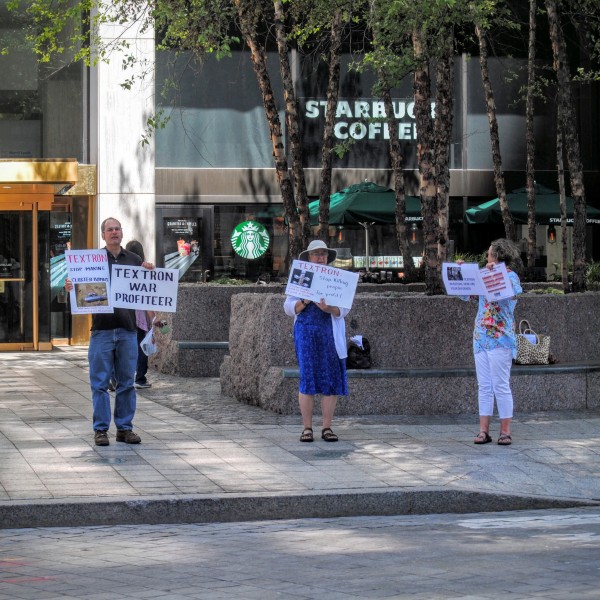
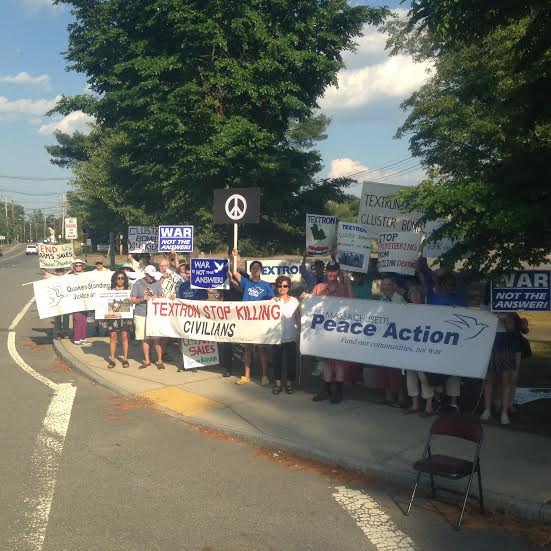 The protests against Textron cluster bombs are spreading from Rhode Island to Massachusetts. On Wednesday, Massachusetts Peace Action held a protest at Textron Systems, a subsidiary of Providence-based Textron in Wilmington, Mass., that was attended by more than 40 people.
The protests against Textron cluster bombs are spreading from Rhode Island to Massachusetts. On Wednesday, Massachusetts Peace Action held a protest at Textron Systems, a subsidiary of Providence-based Textron in Wilmington, Mass., that was attended by more than 40 people.
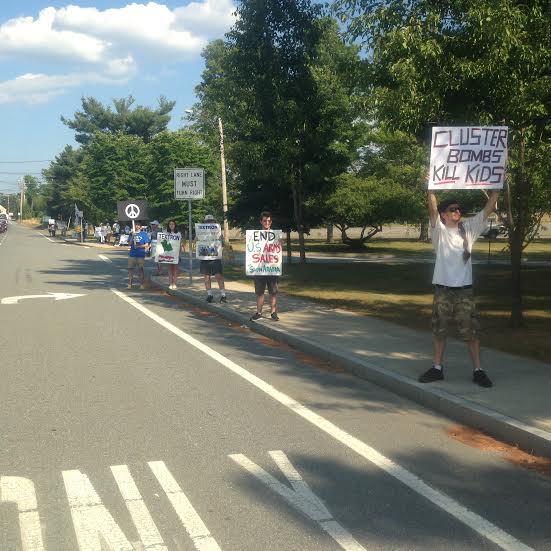
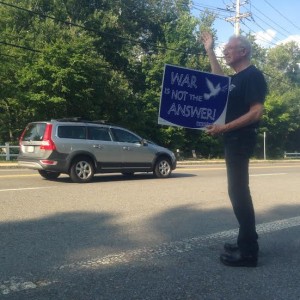
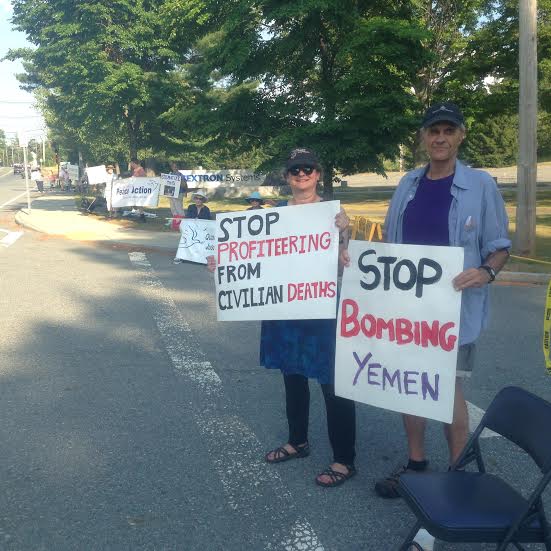

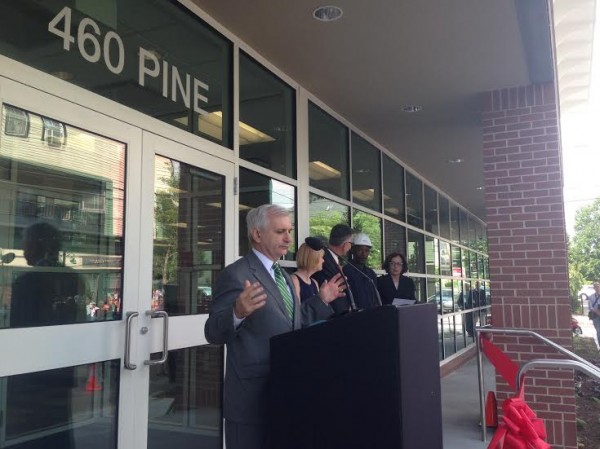 Congress is coming under increasing pressure to stop supplying cluster bombs to Saudi Arabia, but Rhode Island Senator Jack Reed doesn’t seem to be feeling it. He said the weapons, which are made by Rhode Island-based Textron and banned by 119 nations but not the US and Saudi Arabia, “should still be provided under strict conditions,” he told RI Future.
Congress is coming under increasing pressure to stop supplying cluster bombs to Saudi Arabia, but Rhode Island Senator Jack Reed doesn’t seem to be feeling it. He said the weapons, which are made by Rhode Island-based Textron and banned by 119 nations but not the US and Saudi Arabia, “should still be provided under strict conditions,” he told RI Future.
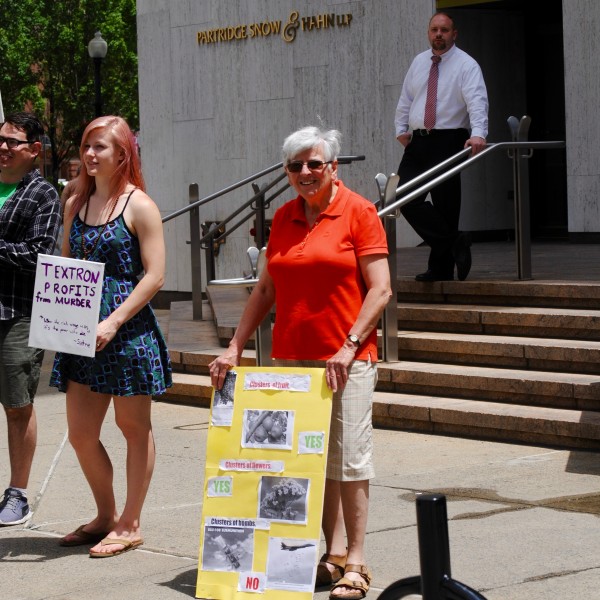
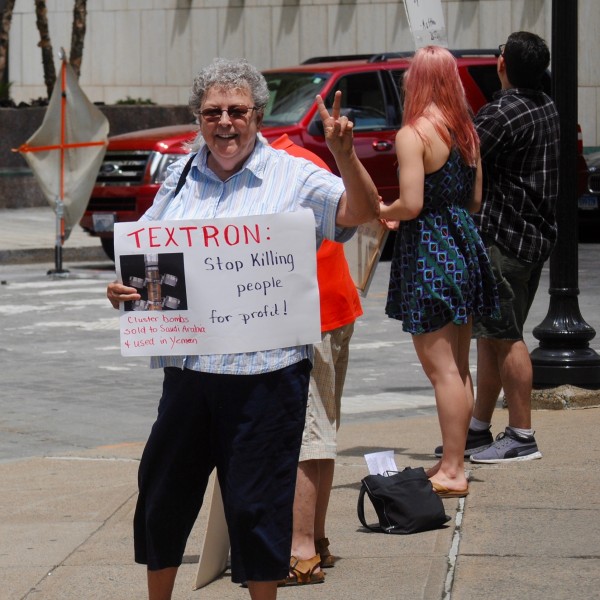

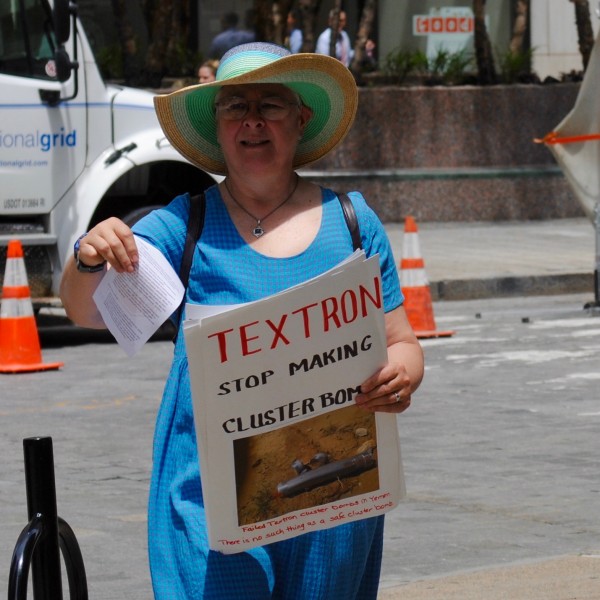
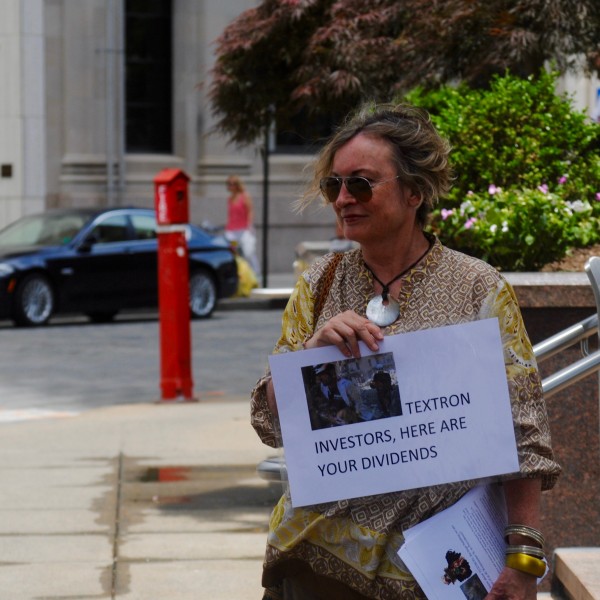
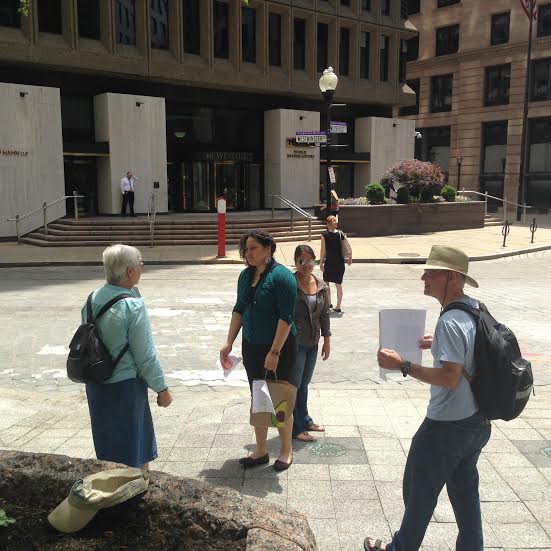
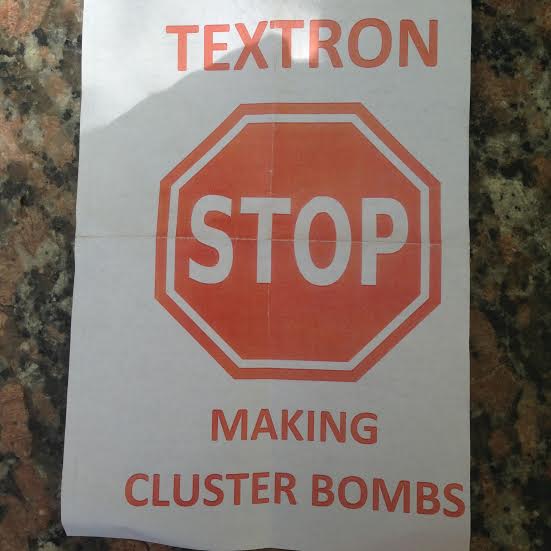
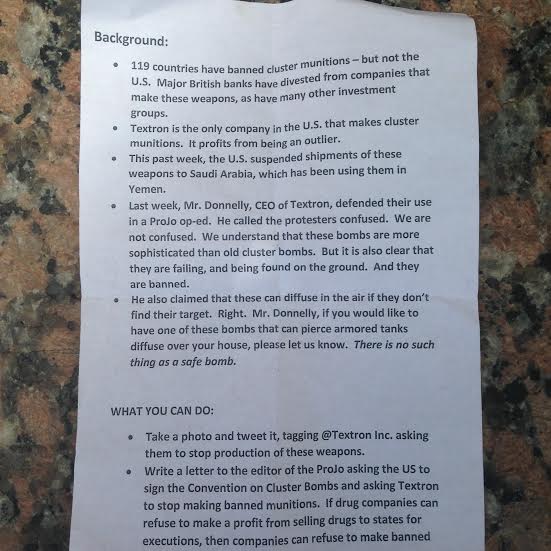
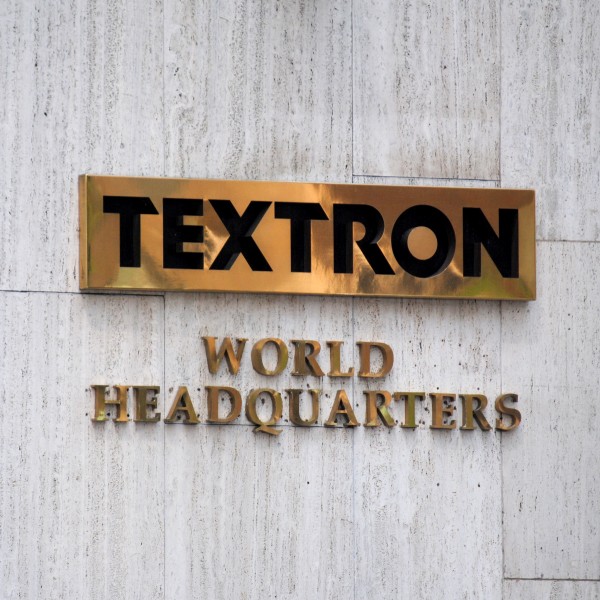 Textron CEO Scott Donnelly wrote an op/ed in today’s Providence Journal taking issue with the tactics of activists who are targeting Textron for making cluster bombs.
Textron CEO Scott Donnelly wrote an op/ed in today’s Providence Journal taking issue with the tactics of activists who are targeting Textron for making cluster bombs.

